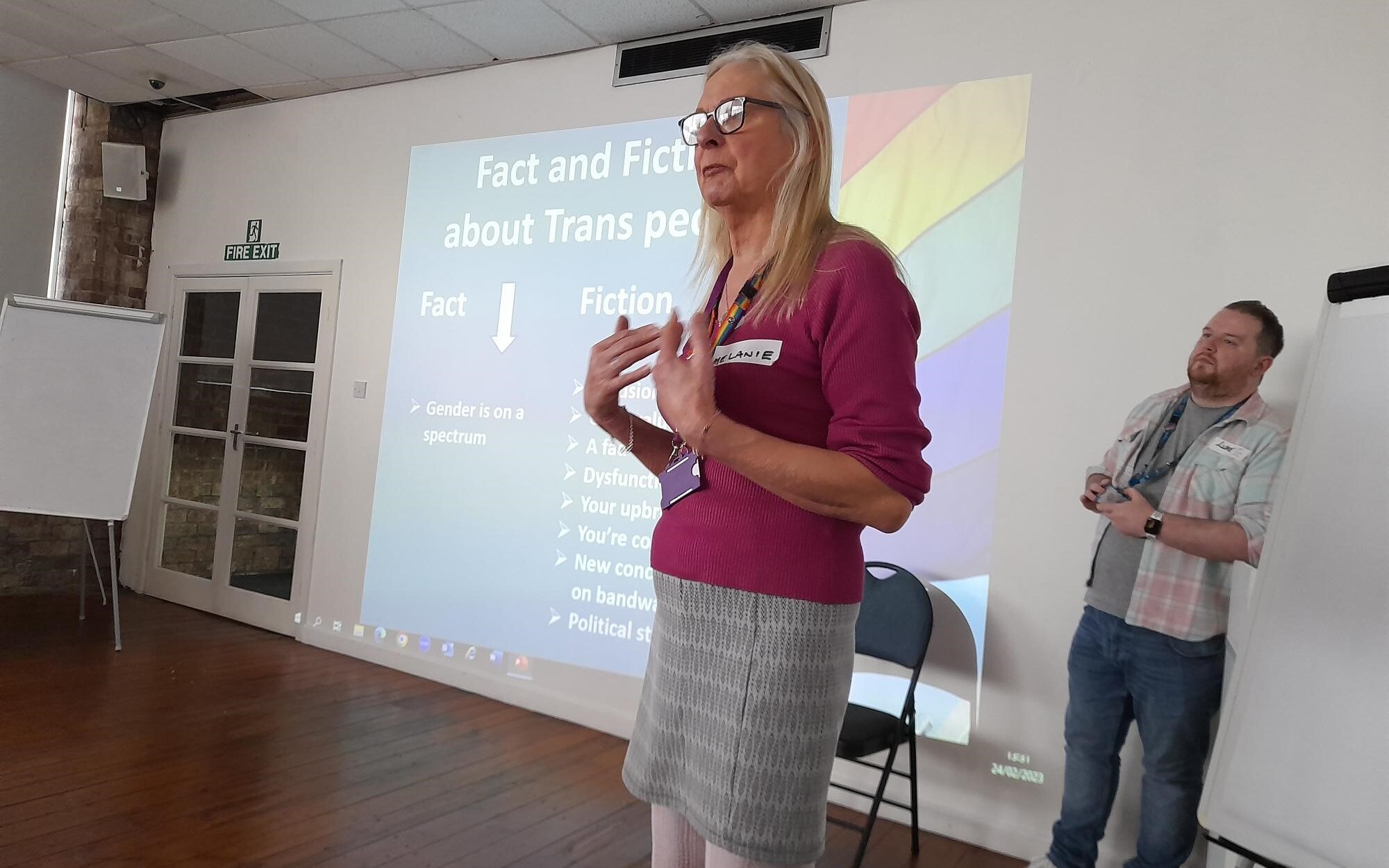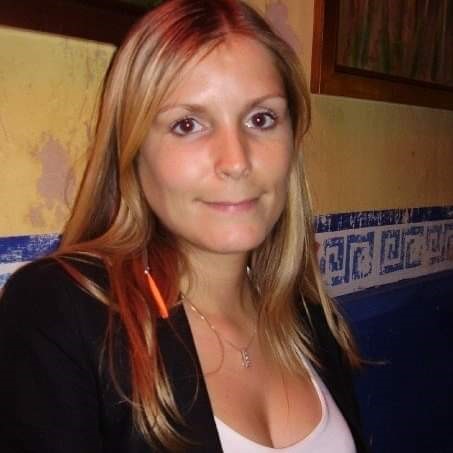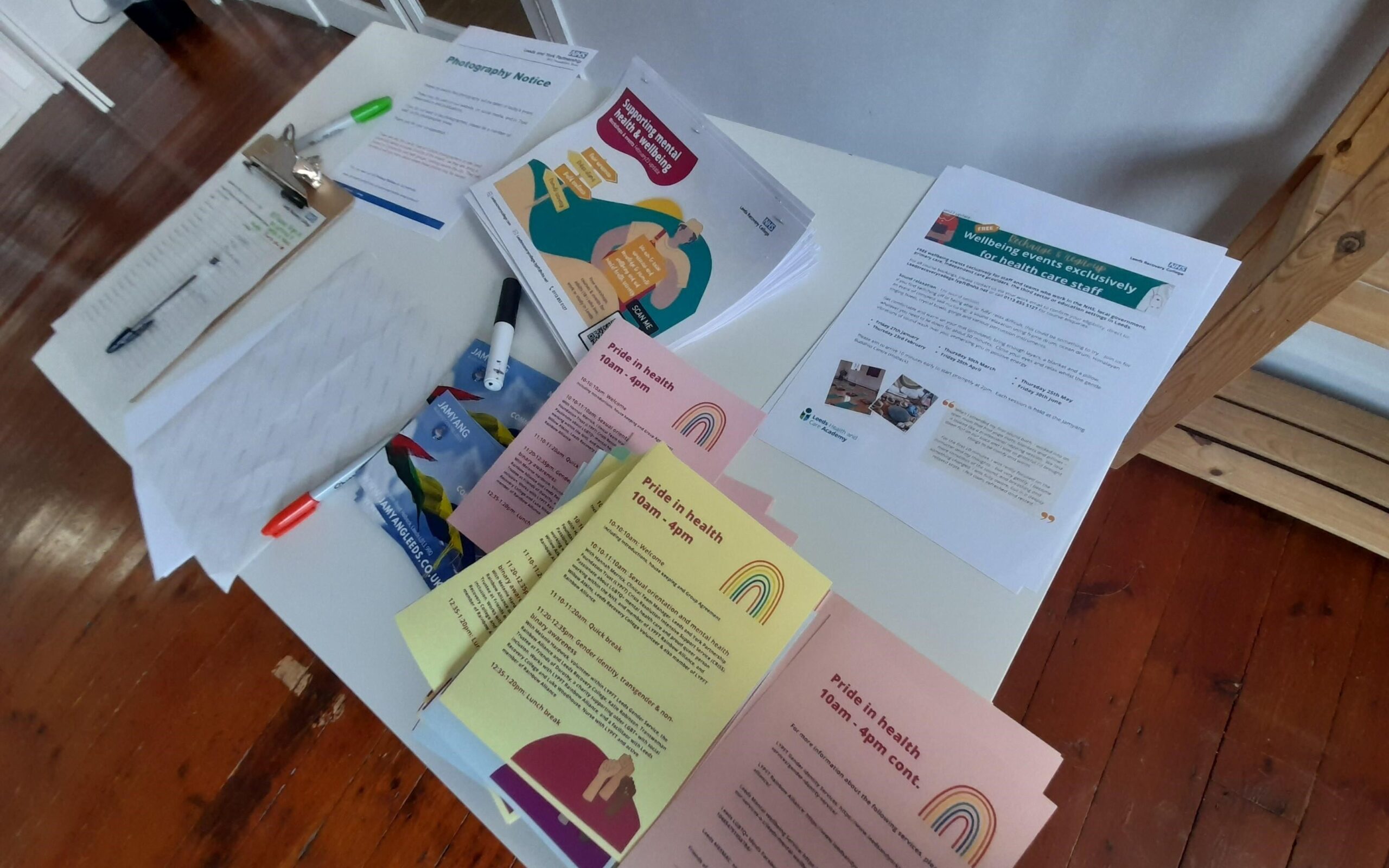
A special event organised to look at how to support the LGBT+ community be safe and mentally well, heard first-hand testimony of the impact that misinformation, stigma and discrimination have on people’s lives.
Leeds Recovery College held its first ‘Pride in Health’ day – an in-person event, at the Jamyang Buddhist Centre in Holbeck, which gave bite-size workshops of the longer awareness-raising sessions the college offers, both online and in communities.
The event covered topics such as sexual orientation and mental health as well as the myths and impact of stigma.
The college’s courses always include lived and learned experiences and Melanie Hardwick, 71, was one of the guest speakers who delivers the ‘gender identity, transgender and non-binary awareness’ workshop.
She told MindWell about the need to raise awareness, improve education and correct common misconceptions through events and workshops such as these.
“Like most trans people, life hasn’t been easy for me,” she said.
“What we do [on the course] is to give information about what it is like to be trans and what comes under the ‘trans umbrella’ – which is quite big. But in the media, everything is generally ‘transgender’ – and it’s not.
Melanie Hardwick, guest speaker
“We want people to have a better understanding so they can go away and think about it and if they can have a reasoned discussion somewhere and stand up for trans people then that’s what we hope they would do.
“If they can do that, then I’m very happy – it would make my day.”
For Melanie, she says she “lived a lie” for much of her life, having known she was “different” by the age of nine or 10.
She said: “I was born in 1951 and grew up in an era where gender was binary. Men were men and women were women. People were happy with that but I knew early on I was different.
“But there was no internet. And I couldn’t go to the library and search, when I didn’t know what I was searching for – not like today.”
She explained: “I used to wear my mum’s clothes. It wasn’t sexual, I just enjoyed how I felt and looked in them. I thought her clothes were better than mine – mine just seemed drab in comparison.”
What followed were years of “living a lie,” she said. Relentless bullying at school led to leaving as soon as possible at the age of 16, but the “big wide world” was just as tough.
After the break-up of a second marriage – during which she had had three children – in 2009, Melanie said she felt she could finally be “who I was”.
She changed her name by deed poll in 2013 and went to the Gender Service in 2014 before surgically transitioning in 2016.
She said: “A lot of people are talking about ‘transitioning’ as when you surgically transition but that just alleviates the dysphoria you feel with parts of your body. Whereas you actually transitioned years beforehand.
“When I look back on my life, I have always been a woman. I’ve been a woman in a male body. That’s something I couldn’t control – that’s the way I was born.
Melanie Hardwick, guest speaker
“I don’t like the word trans woman but because of the way that society is today, I go with it – it’s easier for people to understand. But seriously, I’m a woman.”
Melanie said: “Life is a lot easier now. I’m a lot more confident. I don’t stand bullying from anyone. I can just be the person I am – the real me.
“I have no stress in my life. I don’t have anxiety. No disgust for my body. I’m just happy.
“Sometimes I look back and wish I’d done it years ago and life would have been so much easier. But life is what you make of it.
“I’m going to live my life to the full and do what I do to help other people. That’s why I volunteer.”
She said: “It’s definitely needed in today’s society. Even now, people will shout things and be abusive and assault you because you’re trans.
“While that’s happening, there is a need for what I do. If I can be that person [who raises awareness], where other people are wary, then I’m going to do it.”
Leeds Recovery College

Ruth De Lissandri, co-ordinator at Leeds Recovery College, said having lived experience speakers such as Melanie is a vital component in all their courses.
“I’m really passionate about that. We have made a name for ourselves in terms of having that lived and learned experience and creating that safe space for people to feel they can ask questions that they otherwise find difficult to ask.”
She said feedback to the Pride in Health event had been “amazing”.
“Everyone loved it and it led to better understanding.
“It was to give people a bit of a snapshot of our online workshops – almost like a taster so people can attend the longer workshops if they wanted,” she said.
Later this month, the college is running a similar event but focusing on expressing emotions (at St George’s Centre, Leeds City Centre, on Friday March 31st 10am to 4pm) – with bitesize courses on topics including self-harm, diet and disordered eating and self-compassion.
The college publicly advertises its courses on Eventbrite, self-promotion, through social prescribers in GP surgeries, on the Doing Good Leeds website and via its commissioning NHS trust, the Leeds and York Partnership Foundation Trust.
“We’re trying to be that little stopgap while people are waiting to get into services or waiting to be discharged. We recognise there’s a bit of a gap there. And a lot of people might have been in services for many years and then they’re out and finding it quite hard.”
Ruth De Lissandri, co-ordinator at Leeds Recovery College
Ruth said the courses and workshops aim to give people tools to help in their mental health recovery journeys.
“So they recognise what their early warning signs are that might trigger them and affect their mental health and try to find more constructive mechanisms to do that.”
One of the courses the college offers is WRAP – Wellness Recovery Action Plan – which helps create a personalised plan to getting and staying well.
Ruth – who had struggled with mental health herself – completed the WRAP course in 2018 and initially volunteered at the Recovery College before landing her current job there.
She said: “I had been in services from the age of 13, for over 20 years. I had almost come to depend on them; they’d been a crutch or sticking plaster. When I was discharged, I felt lost, wondering ‘what now’?
“That’s why I’ve found Leeds Recovery College so helpful. I actually found I was taking more of a person-centred approach – looking at myself as a whole person and not just my symptoms and diagnosis, which I appreciate services are doing more of now.”
Upcoming courses include:
- Papercraft and poetry for wellbeing, Age UK Leeds Community Hub (Leeds City Centre), Monday April 3rd, 2-4pm.
- Introduction to balanced eating, online via Zoom, Wednesday April 18th 10.30am to 12.45pm.
- Mental health medication, online via Zoom, Friday April 28th, 10am to 12.30pm.
For more information, including how to book onto upcoming courses, visit www.leedsrecoverycollege.com, phone 0113 855 5127 or email leedsrecoverycollege.lypft@nhs.net.

